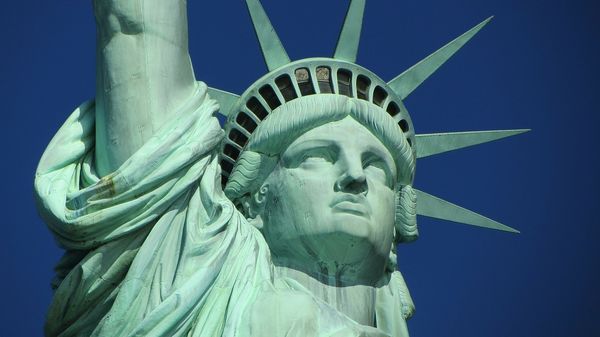On the vast, swirling spectrum of political ideology, fraught with anarchists, communists, staunch libertarians, alt-righters, democratic socialists, and so forth, I find I stand apart. While it is easy to take up the banner of your chosen ideology, I find that any ideology, on its own, is insufficient to be truly universalizing and eternally effective. Of course, if all of humanity suddenly adopted the same values and outlook about a certain ideology, sure, it would work in that case. Yet, the truth many people are not willing to face is that the world cannot, and will not, ever completely unify under the ideals of one school of thought. At least, not within generations of our lifetimes.
The flaw of the ideology is that an ideology usually assumes to solve for every issue and be infallible. A dictatorship of the proletariat in a Marxist-Leninist style system sounds appealing: everyone works together, no inequality, direct democracy. However, the transition to such a state requires the guidance of a vanguard party, which, as seen in every practice of communism to date, will always be corrupted.
Laissez-faire capitalism sounds good in theory, as well: freedom to do what you want with your money, buy what goods you want, and prosperity correlating to your hard work. However, not everyone can be the wealthy factory owner, or the well-off supervisor. Someone always will end up on the bottom, no matter how hard one may work, because the prosperity of the worker is ultimately contingent on factors outside the individual's control, such as market fluctuation and the benevolence of the employer.
To summarize for the sake of brevity, I believe no ideological school of thought is bulletproof and should not be practiced as such. Ideally, I subscribe to federal systems of government, such as the United States (though we have our own problems, but I’ll save that one for another time), where aspects of left, right, socialist, capitalist, authoritarianism, and libertarianism combine to create a formula of relative moderation. The government is strong enough to defend itself and its people, yet weak enough not to infringe on the rights of its people. The people are free to make their own choices, but not so anarchic that order is not maintained, and so on.
American politics may provide a more tangible arena to explain my views. Up until the infamous 2016 election, I considered myself assuredly a Democrat. Peace, love, and the Democratic Party. However, the events of the election caused me to reconsider my stances. The far more charismatic and electable candidate, Bernie Sanders, was actively subverted by party leadership in order to bestow the nomination upon Clinton. Even if Clinton would have won without the party’s ‘help’, the meddling still did not ring very democratic to my ears, and then Clinton lost to a raging, populist, reality TV star.
I reexamined. I shadowed a state legislator. I learned how widely unpredictable corporate tax rates can be. I thought back to when Obama made what I thought to be a mistake or two in foreign policy. I decided maybe the Democrats didn’t have every single answer, but I also knew the Republicans sure as hell didn’t either (e.g. ‘the Wall’).
I remembered from 8th grade history class how George Washington warned against political parties. I saw all of the conservative Facebook articles calling everyone opposed to Trump a ‘libtard’, or claiming all Syrian refugees have a disease, only to be replaced after the election by liberal Facebook articles saying all Republicans are traitors. I found no difference in the rambling, incoherent rhetoric of either party, so I decided to stand aside of both.
I find it is best to observe what works and how to implement it, factually and methodically. Repetitively invading Middle Eastern nations is not producing any positive outcome? Maybe we should stop. We are losing tons of money and jobs to outsourcing? Maybe we should force our companies back stateside. No party of organization can claim to be completely correct in every matter of policy.
The truth is, sometimes your party is wrong, but its members refuse to admit it. For instance, the currently proposed AHCA is an abomination according to nearly all experts, analysts, and vaguely literate. Yet, it is pressed ever forward due to partisan agenda.
I will be the first to admit I am not omniscient, and my thoughts may have some holes of their own. However, no one else’s theory is bulletproof either. Would I like some sort of utopia, such as anarcho-capitalism or anarcho-communism? Sure. You bet. If suddenly everyone worked together and did not deviate from one positive ideology? 100%. However, that is not how the world works, at least not in present course.
Adhering madly to one’s dogma only serves to alienate oneself and further polarize the debate. However, with my efforts towards centrism and moderation, I believe it is possible to amalgamate a system in which lawmakers can cooperate, people can be safe from dangers of any sort, and, ultimately, humanity can succeed.



















